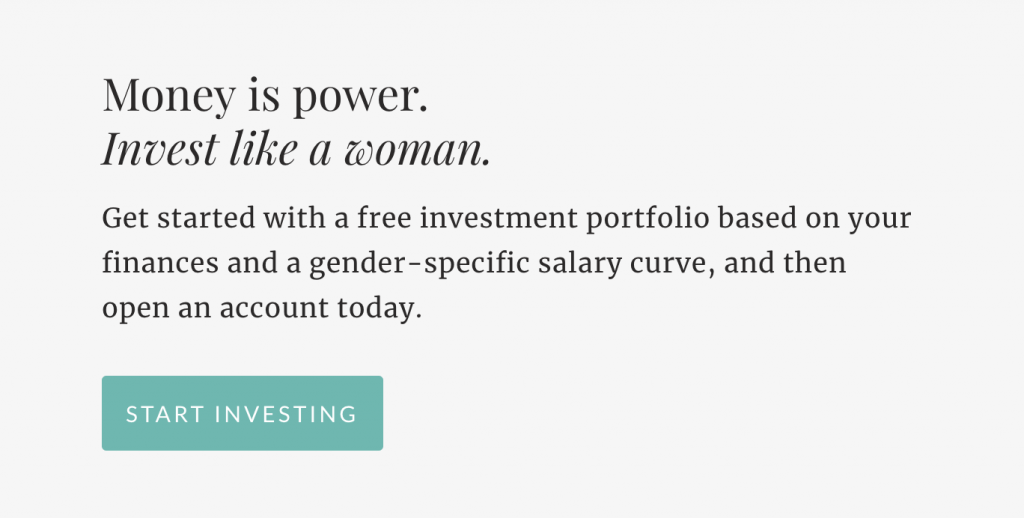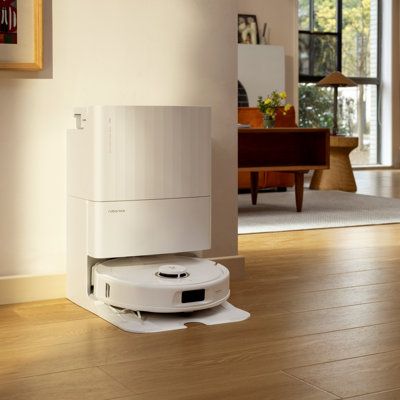When it comes to spending habits, millennial women are always working to find that perfect balance. That said, let me ask you: when was the last time you really thought about what you spent your money on? Not easy, right? This brings me to Finance Diaries, Style Salute’s daily series that focuses on incredibly insightful personal finance tips.
By now, you know how important saving is, and you also know you should be thinking about your future. Still, you also want to spend that hard earned cash. Amiright?
Clothes and beauty products are oh so fun to purchase, but just how much of your paycheck should you be spending on these wants? To answer this burning question, we tapped Sallie Krawcheck, co-founder, and CEO of Ellevest, to offer her tried-and-true advice for getting your finances on track.
Before you say, “I’m too young too old (or too young) think about spending habits,” or “I know I’m managing my spending OK,” remember the last time you were at work having one of those, “Where did my money go?” moments? That passerby thought is exactly why you need to budget your money.
Establish solid spending habits so you know exactly where your money is going every month with the help of Krawcheck’s steps, below.
The 50/30/20 Rule
New to budgeting? Try the 50-20-30 rule to figure out how much you should be spending on the essentials, clothes, beauty and the rest every month. It goes like this: Fifty percent of your take-home pay should go to your needs: rent, food, insurance, and other basics. Thirty percent goes to fun. And 20 percent goes to your future.
So let’s break this down: Fifty percent should go to your necessities (shelter, food, and must-haves like insurance). Next, Thirty percent can go to your wants. Yep. That means you can spend it on dining out, going to the latest music festival, shopping for that new trend of 2018, or scoring the latest beauty product. So what about that last twenty percent?
It turns out this is the most important part. According to Krawcheck, this twenty percent should go towards Future You. “Investing is one of the most important things you can do for yourself. It can build your wealth — not by a little, but by enough to make a real difference in your life,” says Krawcheck. In fact, investing in your future is so important that Krawcheck has made this habit the first rule in Ellevest’s newest publication, “The Go-Getter’s Guide to Investing.” In this guide, she breaks down the five essential rules of investing and doing away with the bull to help you invest in your goals like — *snaps fingers* — that.
Try it now: Have questions about investing? Get a personalized financial plan in just 15 minutes and have expert advice at your fingertips.
Retirement Plans 101
The first place you should save your twenty percent is your employer-sponsored 401(k) plan. If your employer offers to match your contribution to a 401(k) or similar retirement plan, definitely take advantage of that benefit. “It’s basically free money,” says Krawecheck.
This money comes directly out of your paycheck before it hits your bank account. Plus, a major advantage of investing here is your contributions are made pre-tax. That means you are investing your money before it’s taxed, which in turn reduces your tax liability for the year you contribute. Plus, it allows you to stretch your savings even further. This money is only taxed when you withdraw in retirement.
So, what if you have a few accounts open from different employers? You can consolidate those multiple retirement accounts into one simple view with Ellevest. Ellevest charges you no additional fees to roll over your 401(k) and show your regular account fees up-front and clearly — no magnifying glass required. They also manage and rebalance your portfolios to help you stay on track with your retirement goals.
Another way to save for retirement is an Individual Retirement Account — aka, an IRA. Anyone with earned income can open an IRA (freelancers, we’re looking at you.) That’s great news, especially if you work at a place without a 401(k) plan or if you freelance. Once you open an IRA, it stays in the same place, even when you switch jobs; it’s not housed with your employer. While anyone can contribute to a Traditional IRA, eligibility for a Roth IRA is based on your income level. You can see which one’s right for you here.
Try it now: It’s your money. Make it work for you. Get started today. You can put your 401(k)s in one place with an Ellevest retirement account or open an IRA.
Not All Debt is Bad Debt
Debt. Many of us will take on debt at some point in our lives, which as Krawcheck notes, enables us to go to school or buy a home when we otherwise couldn’t. Having debt can be nerve-wracking, but remember: Some debt can be “good,” but much of it is “bad.” And too much debt…when you can’t see your way to repay it is always bad. Krawcheck’s rule of thumb? “If you have credit card debt, pay it off now.” Do this and you can focus on investing in your future and still have enough for that online shopping habit.
One form of potentially good debt that you can have and still invest is student loan debt. A great education can lead to a more interesting job, which can increase your earnings. can be as low as 3.4%, or can range up to 6.8% (possibly higher, depending on when the loan was taken out.) If you’ve been making your payments on time, pick up the phone and ask for a lower rate or if you have student loans, putting them on autopay, which can help you save 0.25% from most lenders (a fun little tip we learned). And look at sites like Lendkey to refinance.
So, what should you do if you have the money to pay off “good” debt?
It’s complicated. But, at Ellevest, their view is that if the interest rate on your debt is less than 4%, you should consider investing in a low-cost diversified portfolio before fully paying off your loans. That’s because annually investing returns have historically exceeded that number. However, if you plan on keeping your money in a savings account (where it earns much less than 4%), you’re better off sticking to paying down your loans — even if they’re low-interest. So, over time, it can make sense to keep that debt outstanding and invest in the markets, to earn the difference between the two. More on tackling student debt so you’re free to invest here.
What To Do If You Haven’t Started Saving
Getting rid of that high-interest debt is just the first step to saving. No matter what stage of life you are in, you need to be saving. Krawcheck suggests that your first savings milestone is to build an emergency fund. “We believe our clients can’t afford any investment risk with their emergency money, so we place all assets in our Emergency Fund goal in FDIC Cash.” This means that these assets are insured by the Federal Deposit Insurance Corporation, “an independent agency of the United States government that protects you against the loss of your insured deposits if an FDIC-insured bank or savings association fails. FDIC insurance is backed by the full faith and credit of the United States government.”
An emergency fund should be at least three months of take-home pay, in case you get fired (hey, it happens to the best of us ), or in case you have to take time away from work for, you know, an emergency. That money should be held in cash. Good news? Ellevest charges nothing to hold your emergency fund because they believe this should be established before you start investing. Once you have your emergency fund, it’s a great time to work on investing for your future.
Try it now: Have questions about your emergency fund goals? Head to Ellevest to get a personalized financial plan in just 15 minutes and have expert advice at your fingertips.
Busting the Myths Around Money
“What do I wish I’d learned about money sooner? So much. Mostly, that money is power, independence, freedom, and living the lives that we want lives that our mothers and grandmothers couldn’t have imagined.” Financial security is easier to achieve than you may think. The biggest mistake people make is waiting too long to invest in retirement. Start building your future now.
One of the biggest myths out there is that women don’t know how to handle finances *rolls eyes*. This ridiculous misconception is far from the truth. In fact, according to HM Payson, 90% of women are the sole manager of their family’s finances at some point in their lives. Make no mistake, women are financially savvy. You should be too.
Ready to invest? Ellevest has no minimum so you can start investing with as little, or as much as you like. Let’s Attack Your Goals.

Next up, here’s how you can start investing — plus, $100 free to start.
Plus, here are more career topics for you…
Best Career Advice You Could Ever Receive
5 Things Ridiculously Successful Women Always Do
Ellevest’s CEO Sallie Krawcheck Shares How to Ask for a Raise (and Get It)







